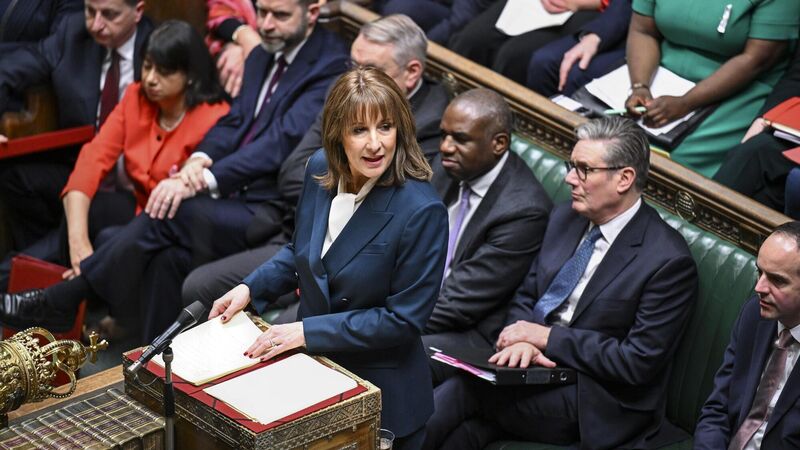British chancellor Rachel Reeves hikes taxes by £26bn in budget

British chancellor of the exchequer Rachel Reeves delivering her Budget in the House of Commons. Picture: House of Commons/PA
British chancellor Rachel Reeves hiked taxes by £26bn (€29.6bn) as she faced forecasts of weaker economic growth, faster inflation, and higher unemployment.
Ms Reeves' measures, including a freeze on income tax thresholds which will leave 1.7m people paying more, take the tax burden to an all-time high according to Britain's Office for Budget Responsibility (OBR).











